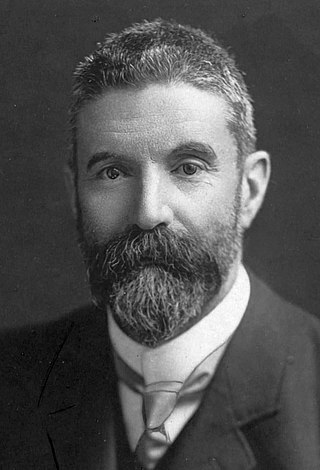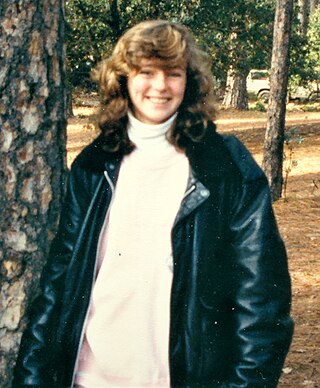
Alfred Deakin was an Australian politician, statesman and barrister who served as the second prime minister of Australia from 1903 to 1904, 1905 to 1908 and 1909 to 1910. He held office as the leader of the Protectionist Party, and in his final term as that of the Liberal Party. He is notable for being one of the founding fathers of Federation and for his influence in early Australian politics.

The Man Who Wasn't There is a 2001 neo-noir crime film written, directed, produced and co-edited by Joel and Ethan Coen. It stars Billy Bob Thornton, Frances McDormand, Michael Badalucco, Richard Jenkins, Scarlett Johansson, Jon Polito, Tony Shalhoub, and James Gandolfini. The film is set in 1949 and tells the story of Ed Crane, a withdrawn barber who leads an ordinary life in a small California town with his wife, who he suspects is having an affair with her boss. Crane's situation changes when a stranger comes to the barbershop and offers him the opportunity to join him as a partner in a promising new business, in exchange for an investment of ten thousand dollars. Drawn to the idea, Crane plans to blackmail his wife's lover for the money.
The Protectionist Party, also known as the Protectionist Liberal Party or Liberal Protectionist Party, was an Australian political party, formally organised from 1887 until 1909, with policies centred on protectionism. The party advocated protective tariffs, arguing it would allow Australian industry to grow and provide employment. It had its greatest strength in Victoria and in the rural areas of New South Wales. Its most prominent leaders were Sir Edmund Barton and Alfred Deakin, who were the first and second prime ministers of Australia.

Henry Stafford Northcote, 1st Baron Northcote, was a British Conservative politician who served as the third governor-general of Australia, in office from 1904 to 1908. He was previously the governor of Bombay from 1900 to 1903, as well as a government minister under Lord Salisbury.

Broken Arrow is a 1996 American action-thriller film directed by John Woo, written by Graham Yost, and starring John Travolta, Christian Slater, and Samantha Mathis. The film's main themes include the theft of two American nuclear weapons, the attempts of U.S. military authorities to recover them, and the feud between Travolta and Slater's characters. The film was a commercial success despite mixed reviews.

Christopher John Pearce is an Australian business executive and former politician. He was a member of the House of Representatives from 2001 to 2010, representing seat of Aston for the Liberal Party. He served as a parliamentary secretary in the Howard government from 2004 to 2007. Outside of his political career he has worked as a senior executive in the IT and telecommunications industries.

Deakin University is a public university in Victoria, Australia. Founded in 1974, the university was named after Alfred Deakin, the second Prime Minister of Australia.
The Liberal Party was a parliamentary party in Australian federal politics between 1909 and 1917. The party was founded under Alfred Deakin's leadership as a merger of the Protectionist Party and Anti-Socialist Party, an event known as the Fusion.

Sir Roger Alexander Deakins is an English cinematographer. He is the recipient of five BAFTA Awards for Best Cinematography, and two Academy Awards for Best Cinematography from sixteen nominations. He has collaborated multiple times with directors such as the Coen brothers, Sam Mendes, and Denis Villeneuve. His best-known works include The Shawshank Redemption (1994), Fargo (1996), O Brother, Where Art Thou? (2000), A Beautiful Mind (2001), Skyfall (2012), Sicario (2015), Blade Runner 2049 (2017), and 1917 (2019), the last two of which earned him Academy Awards.

Lucy Helyn Deakins is an American attorney and former actress best known for starring as Milly in The Boy Who Could Fly and originating the role of Lily Walsh on As the World Turns.
James McConvill is an Australian lawyer who has been a legal scholar, and also a writer and lecturer.

The Commonwealth Conciliation and Arbitration Act 1904 (Cth) was an Act of the Parliament of Australia, which established the Commonwealth Court of Conciliation and Arbitration, besides other things, and sought to introduce the rule of law in industrial relations in Australia. The Act received royal assent on 15 December 1904.

Simon Deakin is Professor of Law at the Faculty of Law, Cambridge, and a Fellow of Peterhouse, Cambridge. He is regarded as the leading expert in the field of employment law and labour law and is the programme director in the Cambridge Centre for Business Research (CBR), as well as an associate Faculty member of the Judge Business School.
Sjeng Schalken was the defending champion but lost in the quarterfinals to Michel Kratochvil.

Law & Order: Criminal Intent is a video game adaptation of the television series Law & Order: Criminal Intent. It is the fourth title in a series of video games based on the Law & Order franchise.

Michael Sven Sukkar is an Australian politician has served as the Shadow Minister for Housing, NDIS, and Social Services since 2022. Previously he had served as Assistant Treasurer and Minister for Housing and as the Minister for Homelessness, Social and Community Housing. Sukkar has been a member of the House of Representatives since September 2013, representing the Division of Deakin in Victoria for the Liberal Party.
Belle Brockhoff is an Australian snowboarder, who has represented Australia at the FIS Snowboarding World Championships and the Winter Olympics. She competes in snowboard cross. She competed at the 2022 Winter Olympics, in Women's snowboard cross.

Smart cities seek to implement information and communication technologies (ICT) to improve the efficiency and sustainability of urban spaces while reducing costs and resource consumption. In the context of surveillance, smart cities monitor citizens through strategically placed sensors around the urban landscape, which collect data regarding many different factors of urban living. From these sensors, data is transmitted, aggregated, and analyzed by governments and other local authorities to extrapolate information about the challenges the city faces in sectors such as crime prevention, traffic management, energy use and waste reduction. This serves to facilitate better urban planning and allows governments to tailor their services to the local population.
Section 113 of the Constitution of Australia provides that legally, all intoxicating liquids in a State are to be treated as if they were produced in that State and subject to that State's laws, even if in reality they were produced in another State.











